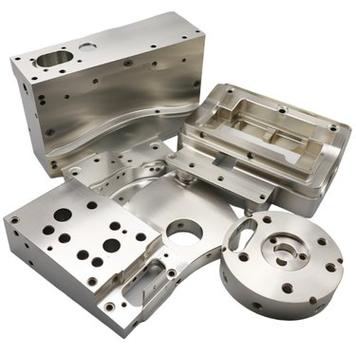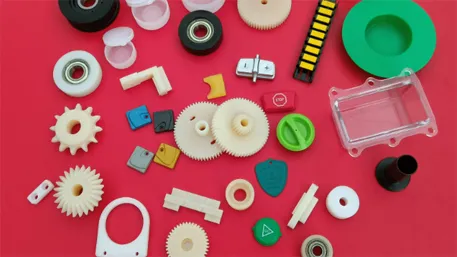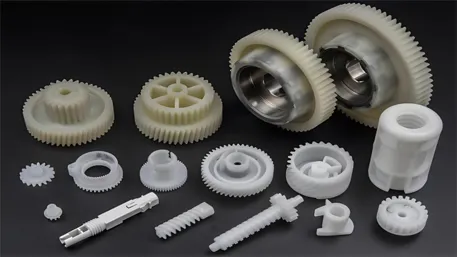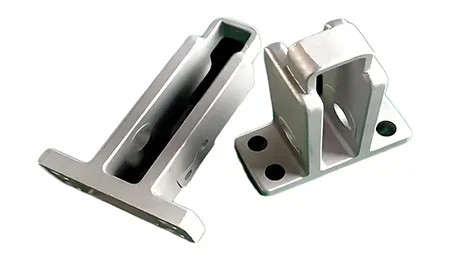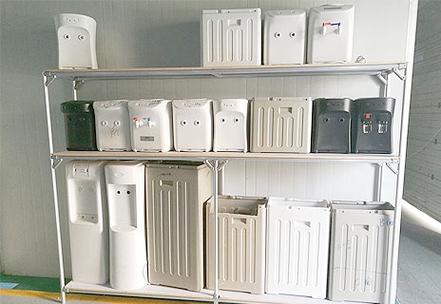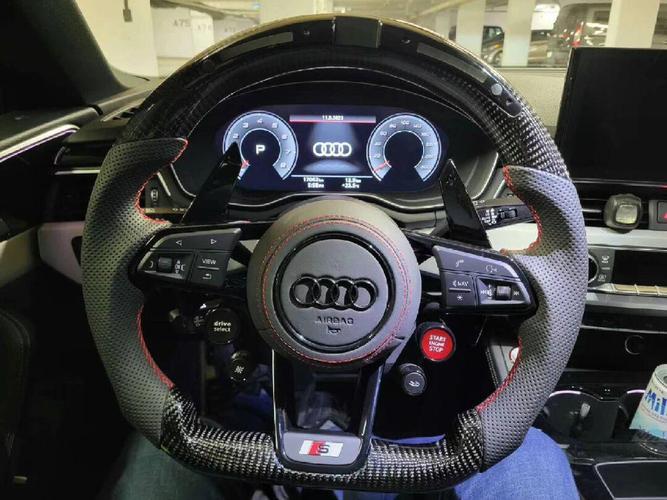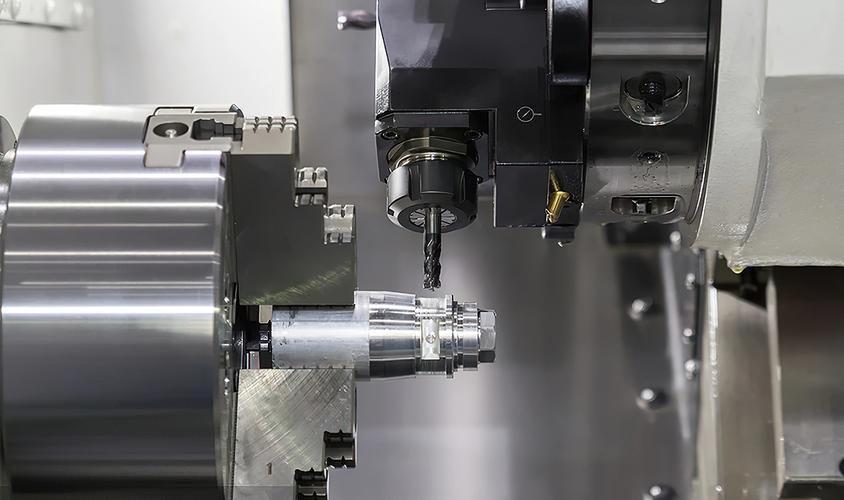In the highly competitive landscape of modern manufacturing, custom precision CNC aluminum alloy parts have become the cornerstone for industries that demand top – notch quality, exceptional precision, and reliable performance. Combining the lightweight, corrosion – resistant, and formable properties of aluminum alloys with the unparalleled accuracy of CNC (Computer Numerical Control) machining, these parts offer tailored solutions for a wide range of applications. This article delves into the technical capabilities, customization process, material selection, quality control, and industry applications of custom precision CNC aluminum alloy parts, highlighting their significance in driving innovation across various sectors.
I. Technical Capabilities: Precision Redefined
(A) Ultra – High Dimensional Accuracy
CNC machining systems are calibrated to achieve extraordinary dimensional accuracy in the production of aluminum alloy parts. With positioning accuracy reaching ±0.002mm and repeat positioning accuracy of ±0.003mm, we can fabricate parts with extremely tight tolerances. For instance, when manufacturing components for high – end aerospace equipment, the diameters, lengths, and intricate internal geometries can be maintained within these precise limits. This level of accuracy ensures a perfect fit within complex assemblies, minimizing clearances and enhancing the overall reliability and performance of the final product.
(B) Complex Geometry Machining
Five – axis CNC machining technology empowers the creation of aluminum alloy parts with highly complex geometries. Whether it’s parts with intricate internal channels for fluid flow, organic – shaped components for ergonomic designs, or parts with multi – angled surfaces for optimized aerodynamics, the five – axis system can execute these designs with precision. Compared to traditional machining methods, five – axis CNC machining reduces setup – related errors from ±0.01mm to within ±0.003mm. Moreover, it boosts production efficiency by over 60%, enabling the rapid production of custom parts even with the most challenging designs, meeting the urgent demands of modern manufacturing.
(C) Advanced Machining Techniques for Aluminum Alloys
Aluminum alloys, while generally easy to machine, require specific techniques to achieve the best results. CNC – controlled machining parameters, such as high – speed cutting and optimized feed rates, are adjusted to prevent issues like tool wear and surface roughness. Specialized cutting tools with advanced coatings are used to reduce friction and heat generation during machining, ensuring a smooth surface finish. Additionally, CNC – guided processes can be used to enhance the surface quality further, such as CNC – controlled anodizing or polishing for parts that require a high – luster finish or enhanced corrosion resistance.
II. End – to – End Customization: Tailored to Your Exact Needs
(A) In – Depth Requirement Analysis and Design Conceptualization
When you approach us with your aluminum alloy part requirements, our experienced engineering team engages in detailed discussions to understand your application, performance expectations, and design preferences. We consider factors such as the operating environment (temperature, humidity, corrosive conditions), the mechanical loads the part will endure, and any specific functional or aesthetic requirements. Using state – of – the – art CAD/CAM software, we generate multiple design concepts. We then collaborate closely with you, refining the designs until they perfectly align with your vision, whether it’s a minor modification to a standard part or a completely new design for a specialized project.
(B) Strategic Material Selection and Cost Analysis
Based on the finalized design, we recommend the most suitable aluminum alloys for your custom parts. Different aluminum alloys offer varying combinations of properties. For example, 6061 – T6 is one of the most widely used aluminum alloys, known for its excellent balance of strength, corrosion resistance, and machinability. It has a tensile strength of up to 310 MPa and is commonly used in aerospace, automotive, and general industrial applications. For applications requiring higher strength and hardness, alloys like 7075 – T6 can be selected. Simultaneously, we conduct a detailed cost analysis, factoring in material costs, machining complexity, and production volume, to provide you with a transparent and competitive quote.
(C) Precision Manufacturing and Order Tracking
Once you approve the design and quote, production commences. You can monitor the progress of your order in real – time through our dedicated online tracking platform. Our skilled technicians adhere to strict manufacturing standards, using advanced CNC turning, milling, and EDM (Electrical Discharge Machining) machines to produce aluminum alloy parts that meet the highest quality benchmarks. We keep you informed at every stage of the production process, from raw material procurement to the final inspection.
(D) Rigorous Quality Assurance and Timely Delivery
After production, each custom aluminum alloy part undergoes a rigorous quality inspection. Only parts that meet our exacting standards are shipped to you. We perform dimensional inspections using coordinate measuring machines (CMMs) to ensure that all critical dimensions are within ±0.002mm. Surface finish measurements are taken to ensure that the surface meets the required roughness specifications for optimal functionality and aesthetics. In addition, we conduct mechanical tests, such as tensile strength testing, fatigue testing, and hardness testing, to validate the performance of the parts. We also offer comprehensive after – sales support, addressing any concerns you may have during the product’s lifecycle.
III. Strategic Material Selection: Choosing the Right Aluminum Alloy for Optimal Performance
(A) 6061 – T6 Aluminum Alloy
6061 – T6 aluminum alloy is a versatile material widely used in various industries. It contains magnesium and silicon as alloying elements, which contribute to its good mechanical properties. Its high ductility allows for easy forming and machining, making it suitable for a wide range of manufacturing processes. With good corrosion resistance, it can be used in both indoor and outdoor applications. 6061 – T6 is commonly found in aerospace components, automotive parts, bicycle frames, and consumer electronics, where a balance of strength, weight, and cost is required.
(B) 7075 – T6 Aluminum Alloy
7075 – T6 aluminum alloy is a high – strength alloy, often referred to as “aircraft aluminum.” It contains zinc, magnesium, and copper, which give it superior strength and hardness compared to many other aluminum alloys. With a tensile strength of up to 572 MPa, it is ideal for applications where high – stress resistance is crucial, such as in aerospace structures, high – performance automotive components, and sporting equipment. However, it is more difficult to machine than 6061 – T6 due to its higher strength, requiring specialized machining techniques.
(C) 2024 – T3 Aluminum Alloy
2024 – T3 aluminum alloy is known for its excellent fatigue resistance and high strength – to – weight ratio. It contains copper as the primary alloying element, which contributes to its good mechanical properties. This alloy is commonly used in aircraft structures, where it needs to withstand repeated stress cycles. It also has good formability in the T3 temper, allowing for the creation of complex shapes through processes like sheet metal forming. Additionally, 2024 – T3 is used in some high – end consumer products and sporting goods where strength and durability are key requirements.
IV. Stringent Quality Control: Ensuring Top – Tier Part Quality
(A) Raw Material Inspection
All incoming raw materials for aluminum alloy parts are subject to strict quality checks. We use spectroscopic analysis to verify the chemical composition of the alloys, ensuring that they meet the required standards. For example, when using 6061 – T6 aluminum, we confirm that the magnesium, silicon, and other trace elements are within the specified ranges. Additionally, hardness testing, tensile testing, and microstructure analysis are performed to ensure the material’s integrity and suitability for the intended application.
(B) In – Process Monitoring
Throughout the manufacturing process, we employ statistical process control (SPC) techniques to monitor key manufacturing parameters. Regular sampling and data collection help us identify and correct any potential issues promptly. We monitor parameters such as cutting speeds, feed rates, tool wear, and coolant flow during machining. In the case of heat – treatment processes, we closely control temperature, time, and cooling rates. If any parameter deviates from the set values, we can adjust the process in real – time to ensure consistent product quality.
(C) Final Product Validation
Before shipping, each part undergoes a comprehensive inspection. We use CMMs to verify dimensional accuracy, ensuring that all critical dimensions are within ±0.002mm. Surface roughness measurements are taken to ensure that the surface finish is optimized for the part’s intended function. Non – destructive testing methods, such as ultrasonic testing and dye penetrant inspection, are used to detect any internal or surface – breaking defects. Only parts that pass all these tests are considered ready for delivery.
V. Diverse Industry Applications: Transforming Manufacturing Across Sectors
(A) Aerospace Industry
In the aerospace industry, custom precision CNC aluminum alloy parts are indispensable. From lightweight engine components that improve fuel efficiency to high – strength airframe structures that enhance safety, aluminum alloys play a crucial role. The low density and high strength – to – weight ratio of aluminum alloys reduce the overall weight of aircraft, leading to significant fuel savings. Parts such as wing spars, fuselage frames, and engine mounts made from alloys like 7075 – T6 and 2024 – T3 ensure the structural integrity of the aircraft while minimizing weight.
(B) Automotive Industry
The automotive industry benefits greatly from custom aluminum alloy parts. Components such as engine blocks, transmission cases, suspension parts, and body panels made from aluminum alloys help reduce the weight of vehicles, improving fuel efficiency and performance. 6061 – T6 aluminum is commonly used for its balance of strength and formability, while high – strength alloys like 7075 – T6 are used in critical components that require maximum strength. Additionally, the corrosion resistance of aluminum alloys ensures the longevity of automotive parts, even in harsh environments.
(C) Electronics Industry
In the electronics industry, custom aluminum alloy parts are used for various applications, including heat sinks, enclosures, and structural components. The excellent thermal conductivity of aluminum alloys makes them ideal for heat – dissipation applications, helping to keep electronic components cool and prevent overheating. The lightweight and formable nature of aluminum also allows for the creation of sleek and compact enclosures for consumer electronics products, enhancing both functionality and aesthetics.
(D) Medical Industry
In the medical field, custom precision CNC aluminum alloy parts are used in a variety of applications, such as surgical instruments, medical device components, and diagnostic equipment. The biocompatibility and corrosion resistance of certain aluminum alloys, when properly treated, make them suitable for use in medical devices. The precision of CNC machining ensures that the parts meet the strict requirements of the medical industry, providing reliable and accurate components for medical equipment.
VI. Frequently Asked Questions (FAQ)
(A) What is the typical precision of custom precision CNC aluminum alloy parts?
Our CNC machining can achieve a dimensional tolerance of ±0.002mm, ensuring precise fit and optimal performance in your applications.
(B) How do I choose the right aluminum alloy for my parts?
The choice depends on your application’s specific requirements, such as the operating temperature, mechanical loads, environmental conditions, and cost considerations. Our experts can assess your needs and recommend the most suitable alloy to meet your performance and budget expectations.
(C) What is the lead time for custom aluminum alloy parts?
Lead times vary depending on the complexity of the design and order quantity. Simple designs can be completed in 3 – 5 days, while more complex ones may take 7 – 10 days. Rush orders are available upon request.
(D) Can CNC machining handle complex aluminum alloy part designs?
Yes, our five – axis CNC machines are capable of fabricating aluminum alloy parts with intricate geometries, including complex internal structures, organic shapes, and multi – angled surfaces, to meet even the most demanding design requirements.
(E) How much does it cost to customize aluminum alloy parts?
Costs are determined by factors such as material, design complexity, precision requirements, and production volume. While small – batch customization may be relatively costly, economies of scale can significantly reduce per – unit costs for larger orders.
VII. Customer Testimonials
An aerospace company approached us to develop custom 7075 – T6 aluminum alloy parts for their new aircraft model. Our team utilized advanced CNC machining and material selection techniques to create parts that met the strict aerospace standards. The new parts not only reduced the weight of the aircraft by 12% but also improved its overall structural integrity and performance. The company was highly satisfied with the quality and precision of our custom parts, leading to a long – term partnership.
An electronics manufacturer needed custom aluminum alloy heat sinks for their new line of high – performance computers. We designed and manufactured heat sinks with complex internal fin structures using 6061 – T6 aluminum and advanced CNC machining. The heat sinks’ excellent thermal conductivity and efficient heat – dissipation design effectively cooled the computer components, reducing the risk of overheating and improving the overall reliability of the products. The customer reported a significant increase in product performance and customer satisfaction.
Reach Out Now for Your Custom Precision CNC Aluminum Alloy Parts!
Regardless of your industry or application, our team of experts is ready to collaborate with you. We offer a seamless end – to – end service, from design to delivery. Contact us today to discuss your project requirements and take the first step towards getting top – quality custom precision CNC aluminum alloy parts that will enhance the performance and innovation of your products.
